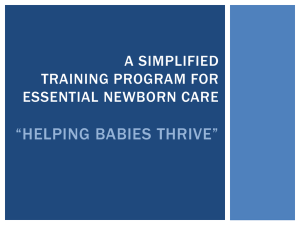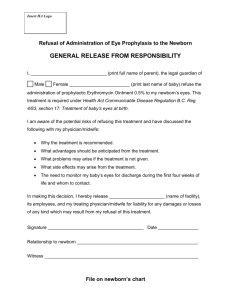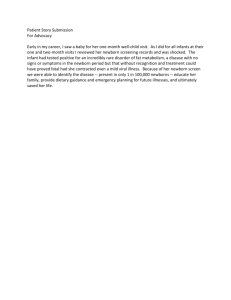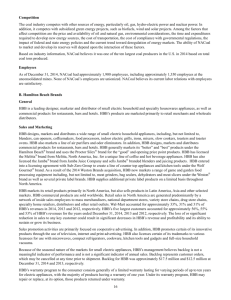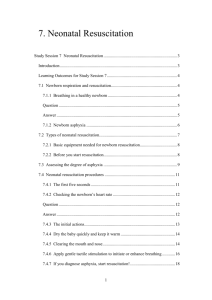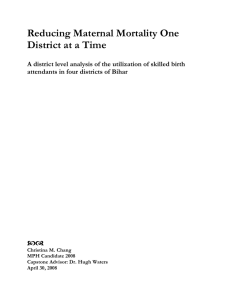Helping Babies Breathe in Bangladesh
advertisement
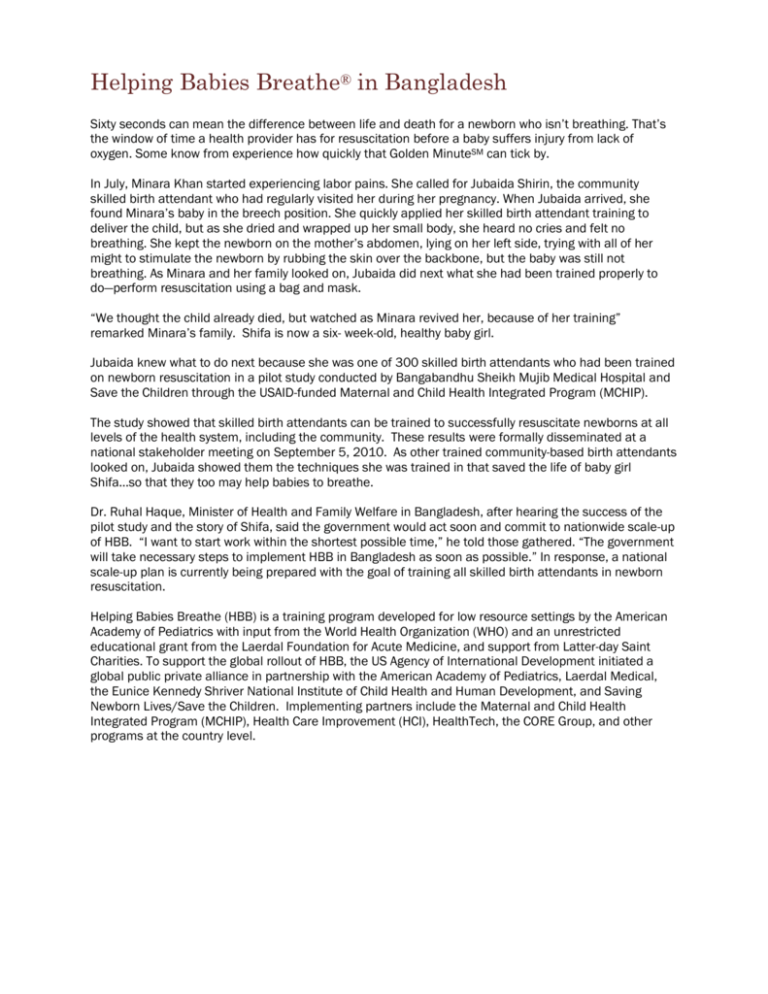
Helping Babies Breathe® in Bangladesh Sixty seconds can mean the difference between life and death for a newborn who isn’t breathing. That’s the window of time a health provider has for resuscitation before a baby suffers injury from lack of oxygen. Some know from experience how quickly that Golden MinuteSM can tick by. In July, Minara Khan started experiencing labor pains. She called for Jubaida Shirin, the community skilled birth attendant who had regularly visited her during her pregnancy. When Jubaida arrived, she found Minara’s baby in the breech position. She quickly applied her skilled birth attendant training to deliver the child, but as she dried and wrapped up her small body, she heard no cries and felt no breathing. She kept the newborn on the mother’s abdomen, lying on her left side, trying with all of her might to stimulate the newborn by rubbing the skin over the backbone, but the baby was still not breathing. As Minara and her family looked on, Jubaida did next what she had been trained properly to do—perform resuscitation using a bag and mask. “We thought the child already died, but watched as Minara revived her, because of her training” remarked Minara’s family. Shifa is now a six- week-old, healthy baby girl. Jubaida knew what to do next because she was one of 300 skilled birth attendants who had been trained on newborn resuscitation in a pilot study conducted by Bangabandhu Sheikh Mujib Medical Hospital and Save the Children through the USAID-funded Maternal and Child Health Integrated Program (MCHIP). The study showed that skilled birth attendants can be trained to successfully resuscitate newborns at all levels of the health system, including the community. These results were formally disseminated at a national stakeholder meeting on September 5, 2010. As other trained community-based birth attendants looked on, Jubaida showed them the techniques she was trained in that saved the life of baby girl Shifa…so that they too may help babies to breathe. Dr. Ruhal Haque, Minister of Health and Family Welfare in Bangladesh, after hearing the success of the pilot study and the story of Shifa, said the government would act soon and commit to nationwide scale-up of HBB. “I want to start work within the shortest possible time,” he told those gathered. “The government will take necessary steps to implement HBB in Bangladesh as soon as possible.” In response, a national scale-up plan is currently being prepared with the goal of training all skilled birth attendants in newborn resuscitation. Helping Babies Breathe (HBB) is a training program developed for low resource settings by the American Academy of Pediatrics with input from the World Health Organization (WHO) and an unrestricted educational grant from the Laerdal Foundation for Acute Medicine, and support from Latter-day Saint Charities. To support the global rollout of HBB, the US Agency of International Development initiated a global public private alliance in partnership with the American Academy of Pediatrics, Laerdal Medical, the Eunice Kennedy Shriver National Institute of Child Health and Human Development, and Saving Newborn Lives/Save the Children. Implementing partners include the Maternal and Child Health Integrated Program (MCHIP), Health Care Improvement (HCI), HealthTech, the CORE Group, and other programs at the country level.
